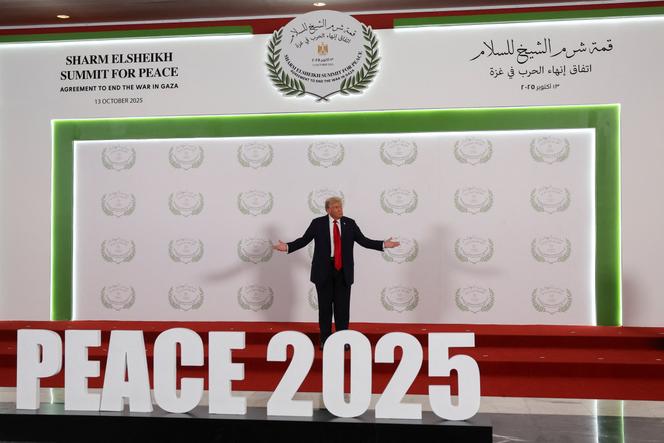

The ordeal of the last surviving Israeli hostages has finally come to an end. So too has that of the Palestinians in Gaza, who have been subjected to indiscriminate Israeli bombing since the massacres of October 7, 2023, perpetrated by Hamas. Nearly 2,000 Palestinian prisoners also regained their freedom in exchange for these releases.
The credit for this outcome must go to US President Donald Trump, who traveled to the region on Monday, October 13, to reap the rewards of his determination to bring an end to an Israeli ground offensive whose purpose had long since ceased to make sense and which had devastated the narrow strip of land.
In Israel, the indescribable joy of families finally reunited did not erase the memory of those killed on October 7 or those who did not survive their captivity. Nor did the restored calm in Gaza make up for the horrific toll paid by Palestinian civilians. But for the first time in two years, the question of the "day after" could finally be raised without being drowned out by the noise of weapons.

This "day after," however, remains elusive. The determination shown by Trump on Monday, both at the Knesset and later at the Sharm el-Sheikh summit in Egypt, could not conceal the ambiguities of the plan he had presented at the White House on September 29, aiming to bring an end to the Israeli-Palestinian conflict. With his customary grandiloquence, the US president announced a "new dawn" and a "golden age" for the Middle East. Ensuring that these can materialize means learning lessons from the infernal mechanics that led to the unjustifiable outbreak of violence on October 7.
First and foremost, the ruthless blockade imposed by Israel on the Gaza Strip after Hamas's takeover in 2007, officially intended to prevent Hamas from causing harm. The major powers must also measure the consequences of their previous inaction, as public opinion, including in the US, mobilized to condemn the obvious injustice faced by Palestinians. Washington has grown accustomed to subcontracting this conflict to Israel, which did everything in its power to reduce the Palestinian Authority in the West Bank to a mere auxiliary role.
European countries have remained just as apathetic. Israel's treatment of the Palestinians and its brutal settlement policy contradicted both the spirit and letter of the association agreement binding Israel to the European Union. Certain Arab states, by normalizing relations with Israel without conditions, also participated in an attempt to cover up the situation, which ended in terrible bloodshed.
If not accompanied by any significant diplomatic effort, the undeniable success achieved by Trump on October 13 would be nothing more than a return to the situation that prevailed on the eve of October 7, 2023. Such a scenario will condemn two peoples, trapped in their traumas, to live in fear of new massacres.
History has shown what the two sides in this conflict are capable of when left to their own devices: ineptitude, division and a headlong rush into barbarity for the Palestinians; hubris, blindness and messianic intransigence for the Israelis. Achieving the just peace that the two-state solution could guarantee requires the commitment and consistency of all parties. That remains a very distant prospect.
Translation of an original article published in French on lemonde.fr; the publisher may only be liable for the French version.
